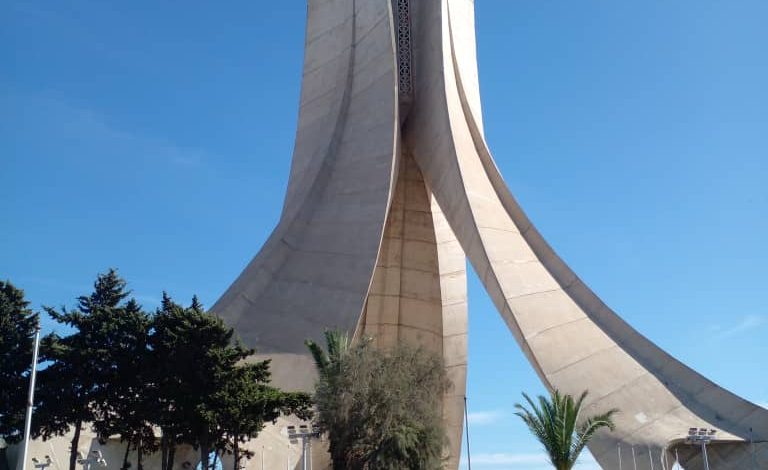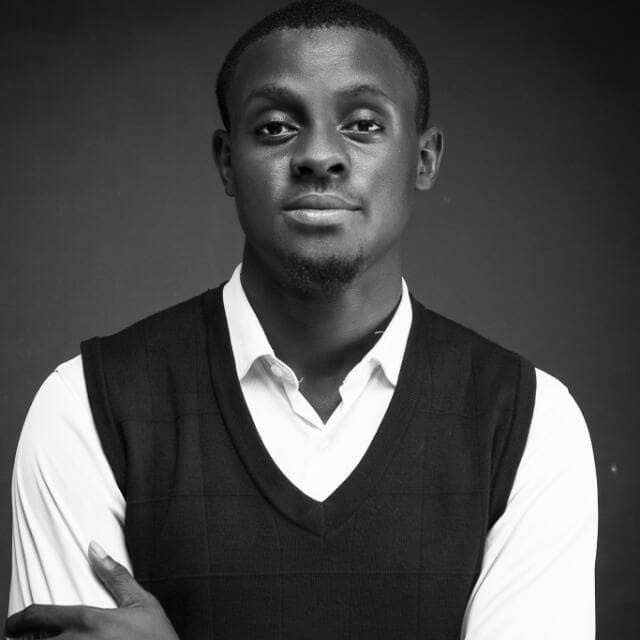‘Kakadu the Musical’ hits MUSON stage, animates festive season 10 years after premiere
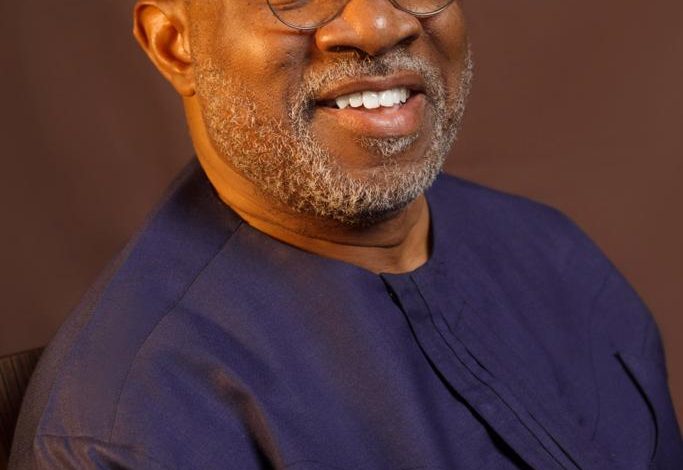
: Asks critical question: ‘How do we build a nation out of Nigeria?’
* Musical Theatre hits stage December 28th, 29th, 30th @MUSON Centre, Lagos
* Burna Boy, Rema, Davido, Wizkid, others Nigeria’s biggest global PR ambassadors
By Anote Ajeluorou
Kakadu was a famous nightclub back in the 1950s and 1960s, but then the Nigerian Civil War broke out and rendered brothers and friendships asunder. When the fog of war finally cleared and victims began to pick up the pieces of their lives, owner of Kakadu returned to business, but life was no longer the same. How did it all go wrong and where has that national scar left the country ever since? This is at the heart of Kakadu the Musical Theatre, written and produced by legal luminary, Mr. Uche Nwokedi, which first premiered in 2013. However, the musical theatre’s resonance is for all seasons. As Kakadu returns to stage at MUSON Centre, Lagos from December 28 through 30, 2023, Nwokedi relives the life of his musical theatre and the intense dramatic promises and national re-evaluation it holds for global audiences, including its primary one – Nigerians!
The 10th anniversary has been a journey so far. Kindly walk us through it…
THE 10th anniversary is a milestone in the journey so far. Kakadu premiered in April-May, 2013. When it premiered, it did so well that it was given an award by by the National Association of Nigerian Theatre Arts Practitioners (NANTAP). NANTAP in 2013. Part of the citation for the award was that it was complete theatre. At the time, I think it was something that was totally unexpected. And in a way, it brought another genre of theatre to the stage in Nigeria. Since then, Kakadu has travelled to Calabar, Davos in Switzerland and Jo’Burg in South Africa. Yes, it’s almost a completely new company or cast, the fourth that has run Kakadu since it premiered in 2013. Our usual approach is to audition each time we have a run.
As the writer and producer, what satisfaction does it give you in this long stage journey for Kakadu?
The main thing is that it is an enduring production with an enduring theme. What I find most interesting is that the plot and its message continues to resonate through the years, with the central question – How do we build a nation? Each time we run we leave it to the cast to address that question. The plot continues to resonate throughout Nigeria, especially Nigeria today. It’s always relevant, always addressing our national consciousness; it’s enduring. It’s the kind of production that when you see it again, the historicity of it puts your mind on enquiry – “where are we now?” Even now, as we are running it, we have seen other directions we could actually go if we wanted to. But we need to be careful to keep it simple and not to overstretch or extend too much. So, it’s an interesting production, and to be honest with you, when I wrote it, I didn’t think it would have this kind of impact on theatre in Nigeria. At the time it was just a fun project for my foundation – The Playhouse Initiative.
One aspect that resonates with me is the sense of nostalgia in the music and the lifestyle of the 1960s, and there’s that perennial sense of loss of a golden era after watching it. And you ask, where does Nigeria go from here in its quest for nationhood?
Yes indeed, that is one of the central questions. Where do we go from here? So, the question is, ‘how do we build a nation?’ When we staged it in South Africa, that was what they held on to. One of the patrons who came to see the show said she liked the fact that, at the end of the day, we asked the question, ‘how do we build a nation?’, because that’s also where they are. That question, ‘how do we build a nation’ resonated so well with them. That is a question that’s facing Nigeria today: how do we build a nation? It’s a question we should always ask ourselves in everything that we do: how do we build a nation?
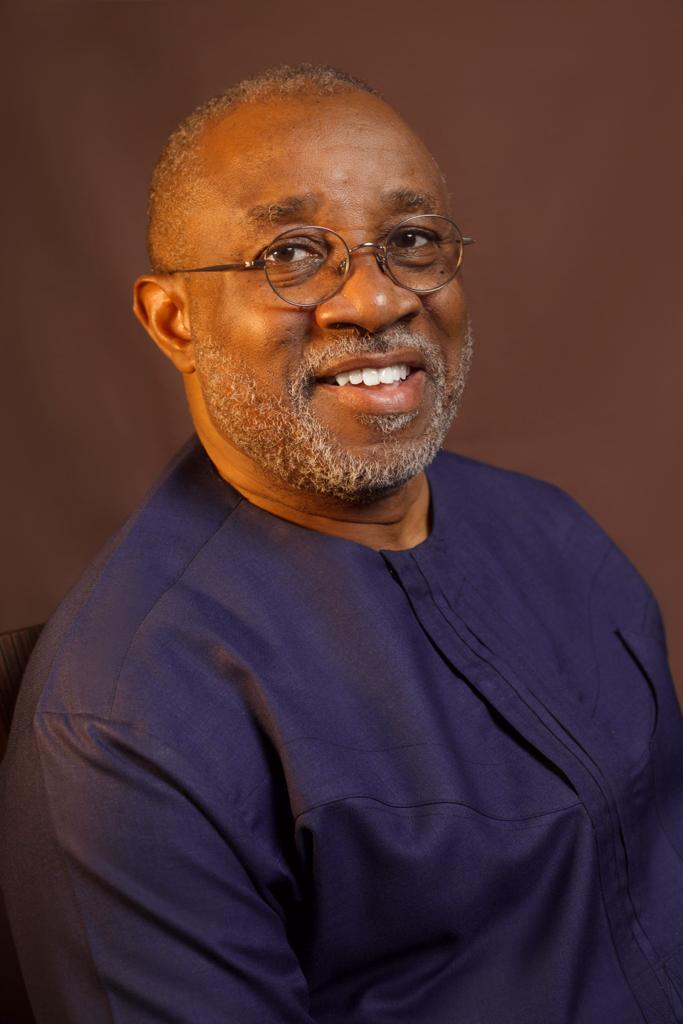
Writer/producer, Uche Nwokedi
We will keep asking that question and I’m sure we will have millions of answers to it. And so it’s been 10 years since Kakadu hit the stage, and one would have thought there would be a sequel to it by now, but your dramaturgy hasn’t quite unfolded in any other direction. Why is that?
For a number of reasons. You know, Kakadu has a strong spirit, so it arrested us, it arrested everybody involved in the project. And it kept us like that (frozen)! Even when we think of going in different directions, we still come back to it, that is to say we’re not quite done with it. But then it’s also a question of time for me. I also took time off to write my childhood memoir of the civil war, A Shred of Fear which so far has received good reviews . Maybe going forward, I will come back to write drama. I have a couple of productions in the pipeline that I’m writing. It’s always a question of competing interests between my law practice and my work, and drama is actually a passion. It’s the law practice that keeps the lights on so it takes precedence in what I do.
You’ve also given us, not exactly a counterpart piece, in A Shred of Fear, these two artistic pieces side by side. What exactly do they mean to you as their creator?
Your question is like having two children that are different in character and you ask yourself: are you saying you prefer one child to the other? One might be rascally and playful, and the other might be serious and studious, but you love them both equally. Kakadu is interesting in the sense that it’s a musical; there is a lot of music in it, so it gives a different look on things. So, we have another character. When you look at both works, you see very different characters who are united in their love for music. We underestimate the influence of music in our lives. If you look at Nigeria today and what kids like Burna Boy, Wizkid, Davido, Rema are doing, you will appreciate that hey are our best ambassadors Nigeria has today and like our footballers and athletes they too should be encouraged, because anywhere you go in the world, they play Nigerian music. There is nothing that the government has done to get us that kind of PR. They have been the ambassadors in the universal acknowledgement of Nigerian talent. We must be very careful to nurture and promote that aspect of the arts.
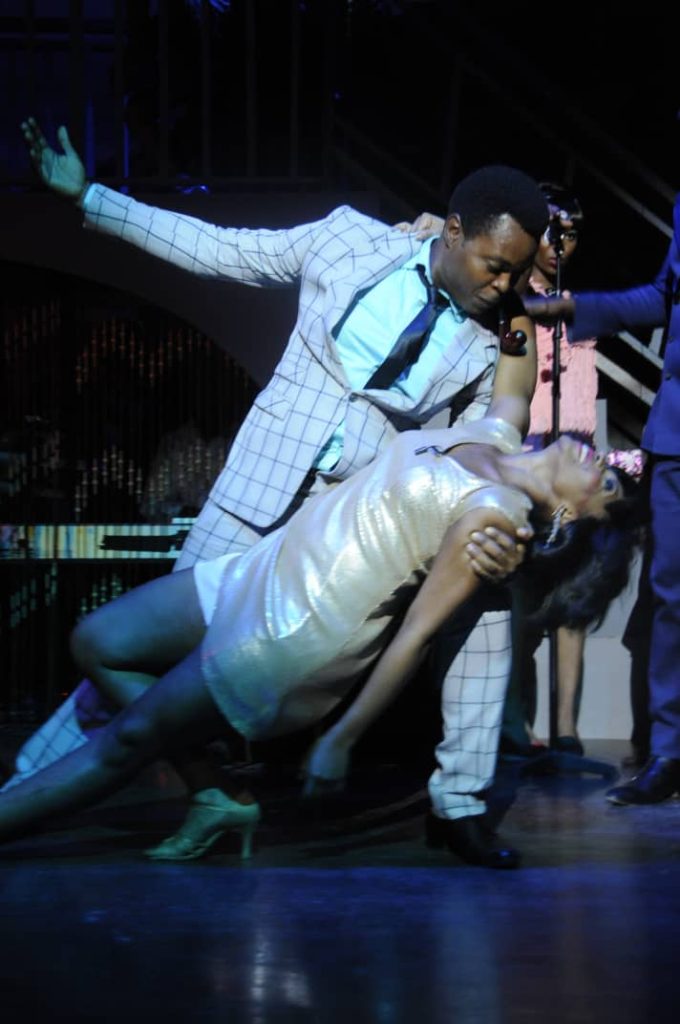
Boogieing down on the 1960s/70s dance floor
Ordinarily, we can’t stop talking about the government in the light of what you just raised about Nigerian artistes being the greatest ambassadors or PR agents for the country. One would have thought that those who are in government, say Ministry of Culture, Tourism or even National Orientation Agency should find a way to leverage on this. Why aren’t we seeing the support?
What you’re seeing is the efforts of our young talents, and they’ve done very well. So, we have to respect them and give them kudos for what they’ve done. This is in spite of the fact that there is no formal education for the arts in the schools.
When you look at A Shred of Fear, it reads very graphically, and it’s a potential material for the screen. If someone approaches you for a film adaptation of it, would you like to listen?
And if not, why not? I suppose we will cross that bridge when we get there.
When is Kakadu due for the stage?
Kakadu will be on stage on 28th, 29th, & 30th of December at the Shell Hall, MUSON Centre, Lagos. Perhaps, If we get the right sponsorship, we will take Kakadu round the country. This show is being sponsored mainly by First Bank, otherwise the cost of production these days is so high. First Bank Plc’s support arm for the arts, First@Arts, and Kingmakers are supporting us. If you want to run a good show, you need serious support and sponsors. The shrinking economy is a huge challenge. What you could get away with before cost-wise, you can’t do it again. It’s not justifiable; and it’s not as if people are being unreasonable, it’s just life. That’s what it is.
Who are the main casts for Kakadu?
We have a lot of younger people this time. A few of the people that went to South Africa with us are still with us. But we still auditioned. So we have a fresh cast and a combination of some of the young people and some of the older people makes it a very exciting cast, and they bring their own interpretation to the story, because each actor interprets the characters they play in their own way. Some people asked me, ‘why are you doing it again’, you’ve done it before’, and I said it’s the same Kakadu but a different production. Production-wise, it’s different. So anybody that saw it a few years ago and comes to see it now will be looking at a different show. I mean, we’ve worked on the music and improved, we’ve worked on the drama and improved, the staging will be somewhat different. And again, you see it through the eyes of these young people as well, who in their own way are trying to interpret what is going on in Nigeria. It’s a bit of a history lesson for these new actors as well. What was Nigeria like in the 1960s and what is it now? So they have to do their own research on what Nigeria was in the 60s and what it is now.


